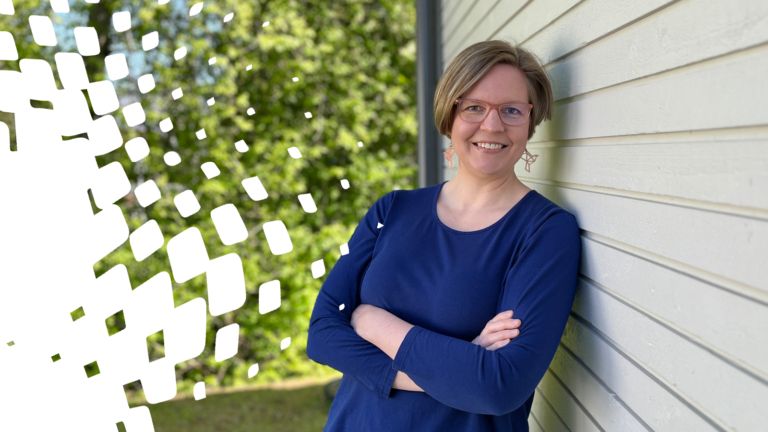In late spring, I spent a couple of days mulling over an educational conundrum. Eight years earlier, I had started my second master’s degree, taken study leave from work and gotten my studies off to a good start. The first two years of studying went well, but after that, I spent the next six firmly in my day job. I had left my second degree on the backburner, and now, I needed to decide whether to try and finish it.
I have a great urge to learn. I would like to learn more about the economy, artificial intelligence, pedagogy, educational sociology, law and so on—and all at a sufficiently international level. Every week, I listen to various webinars, read a lot of journals and some books, too. I watch the news and sometimes even A-studio on Finnish TV.
I’ve heard that as much as 80–90 percent of the learning among people in working life takes place at work, while working. So learning doesn’t mean sitting in a class—instead, it’s linked to all human activities. Learning is particularly necessary in a fast-changing field such as communication. Everything is in turbulence: the operating environment, tools and pace. Communication professionals support experts in other fields as the role and importance of communication grows across the world of work.
I explored what it would take in practice to continue my degree. I had moved 600 kilometres away from Helsinki, so remote studies would be the best option. Not possible, they said. I have done my fair share of travelling. One autumn, I spent nearly 800 euros on train and flight tickets, and it was a sacrifice I was willing to make.
The transfer application for universities came at an opportune time in May. It means changing your place of study from one university to another. Unfortunately, I didn’t have any time left to complete my degree. (For the boomers out there: a limited study period was introduced in Finnish universities in 2005. Degrees must be completed within a specific time period, which is usually 7 years in a full master’s degree (3+2 years)).
When I went over the remaining studies and realised the sheer number of courses, cold sweat started to run down my forehead: ain’t nobody got time for that! I’d rather continue my current path, picking up key knowledge and skills from here and there.
Unbeknownst to me, my reflection coincided with several educational trends. Firstly, there is the emergence of modular learning. Working-age people who want to update their skill set don’t have time to start an entire degree from scratch. Instead, they must be able to build new knowledge on top of existing one, quickly and very flexibly. This is the leading idea in the Digivision work carried out jointly by all 38 Finnish higher education institutions. The Digivisio 2030 programme will bring the course offerings of universities and universities of applied sciences to one place for learners to browse. The first implementation, offering continuous and flexible learning, will open at the end of 2024. The future also holds the prospect of storing all studies of the learner on a single platform.
The modularity is challenged by the habits of employers and the strict qualification requirements in some fields. Will the world of work become more flexible in accepting certificates that are smaller than degrees? For me, a clear example is the pedagogical qualification in adult education (60 credits), which I will have from my studies in any case.
The second trend is as strong as the first: learning must be able to overcome obstacles of time and place. When time is limited, studies must adapt to the learner’s use of time and location, not vice versa. As much as I value the richness of face-to-face interaction, the price is too high if it takes two days to travel. I’m not particularly loyal to the HE institutions nearest to me—I will always want to pick the highest quality studies easily wherever they are.
Thirdly, both individuals and society must learn to optimise education. At some point during my studies in the new field, I realised that my income level would not increase from before. At the same time, I had gathered a lot of enthusiasm for my old profession on study leave. No one would ever nag me in recruitment for having only one master’s degree and not two. There have been times when I’ve been on the brink of unemployment, and I’ve also had to work hard to get a job, but overall my position in the labour market is good.
This has been a hot topic across society, also in government negotiations. Offering extensive degrees is expensive, so it is necessary to be able to examine the backgrounds of those studying them.
So, what did I eventually decide? I made the solemn decision to drop out of the degree programme with my head held high. This lets me ride the hottest wave in the educational revolution and frees up my time for various topics. Learning never stops!
Elina Mattila-Niemi
The author is the Communications Manager and the contact person for communications of the Digivision project at the University of Oulu
Twitter @Elina_Nie
Follow education policy influencers and participants in Finland through a Twitter list
